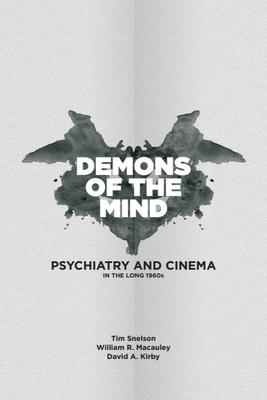In the 1960s, psychiatrists and other mental health professionals intervened in and influenced cinema culture in unprecedented ways, changing how films were conceived, produced, censored, exhibited and received by audiences.
Drawing upon extensive archival research, Demons of the Mind provides the first interdisciplinary account of the complex contestations and cross-pollinations of the 'psy' sciences (psychiatry, psychoanalysis, psychology) and cinema in Britain and America during the defining 'long 1960s' period of the late-1950s to early-1970s.
This interdisciplinary book incorporates expertise from film studies, history of science and medicine, and science communication. The originality of this book is not solely its interdisciplinarity and exploration beyond the narrow study of representational practices - typically the primary focus of other books on cinema and the psy professions. In large part, this book's originality rests on its investigation of situated practices and interplay between ideas, expertise and professionals that constitute the fields of mental health and media.

Demons of the Mind: Psychiatry and Cinema in the Long 1960s
In the 1960s, psychiatrists and other mental health professionals intervened in and influenced cinema culture in unprecedented ways, changing how films were conceived, produced, censored, exhibited and received by audiences.
Drawing upon extensive archival research, Demons of the Mind provides the first interdisciplinary account of the complex contestations and cross-pollinations of the 'psy' sciences (psychiatry, psychoanalysis, psychology) and cinema in Britain and America during the defining 'long 1960s' period of the late-1950s to early-1970s.
This interdisciplinary book incorporates expertise from film studies, history of science and medicine, and science communication. The originality of this book is not solely its interdisciplinarity and exploration beyond the narrow study of representational practices - typically the primary focus of other books on cinema and the psy professions. In large part, this book's originality rests on its investigation of situated practices and interplay between ideas, expertise and professionals that constitute the fields of mental health and media.